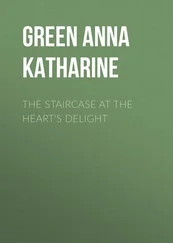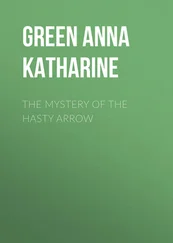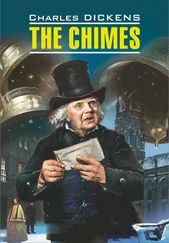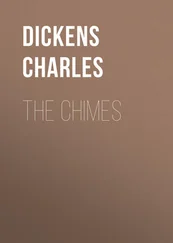I wait with my empty lungs for time to start again, for breath to start again, dreading the pain and wanting it to come, and yet not knowing what it will look like when it finally does.
I wait for the dead sound of the fourth toll that signals Matins. I try to imagine where Lucien is, whether they have entered the inner chambers. I try to believe that his gift will protect him from the Carillon’s assault. I am sure time has passed, but it is impossible that Chimes would be late.
Then I hear a sharp knock at the door. A knock then a voice, cool and hard.
‘Simon? Simon Wythern? Open up. Open up or we will break this door.’
I reach to my ankle. Bodymemory feels for the knife that should be strapped there. But it has gone.
There is no moment of surprise. I walk and look out of the window, across the curved distance of the grass. Through it, people are moving in their ordinary days without any knowledge of any of this. I stand there halfway across the room and wait for them to break the door.
When they come, they are many. The poliss enter the room as if to fill it and the thought comes that I must fight, because the longer it takes to remove me, the more chance Lucien will have. Even as I think it, I see it is probably not true. But somehow I have been waiting for my pain and it is a relief when it comes even in this form. Through the legs of the poliss while I can still see clear, there is a whiterobed man who looks down with great disdain. ‘One pactrunner, far from home,’ is what I hear him say. ‘As she told us.’
When the poliss at last pull me from the room and the pain is singing high through everything, the words still come and go in my mind. As I’m dragged down the corridor of the decommissioned cells and into the sunlight’s pale violence. As they pull me across the public grass and round the cobbled square at its centre with the magister walking free and graceful ahead. All the way past Martha, slumped at the wooden pole, and the presence of her body and the crossed stave and the mockery of a threnody strung along it, I hear the words. As she told us .
Perhaps they’ve deafened me with their blows, I think, and the last thing I heard is what will stay. But who is she ? I think. And they pull me towards the pale stone of the tower, and the arms of the Lady reach out as if to offer up their consolation.
Then I am pushed through doors of pale wood and into a massive hall.
I’m on my stomach, but against my will I look up.
The hall is fluted, elegant, like the body of one of the giant shells that are washed up on the strand sometimes. Yet it is human. My mind struggles to understand the time that has been given to it, whole lifetimes between the laying of its first stones and its completion.
Columns stretch up as if they have grown out of the floor like immense trees. They are carved in hard white stone that somehow looks soft to touch. Three, four floors of fluted columns stretching up to a ceiling that seems to breathe and move like the many mouths of a giant creature. All white. I recognise the intricate lace stone carving on the walls as soundproofing. The mouths at the ceiling are open to swallow music. Light fills the hall through high windows, and the smell of incense is strong.
It was not Sonja who gave us away, I think. She was ready to release all of this, to give it up.
But what did we have to offer her in return, next to this beauty? the voice in my head says. No answers, no order. Nothing but mess, questions, fear.
In the middle of the hall, around a table of pale wood, sit the magisters, some in travelling cloaks, most in the white robes of the elect.
‘Bring him in,’ says the one in the centre, the one whose beard is the same white as his robes. I manage to get half to my knees. Because I want to see him. Something in me needs to see him. When I look, it is blurred. My left eye feels broken, and the pain in my head comes forte. I shut the broken eye and it is clearer. I can look then at the man of power who is sitting in front of me. The one responsible for so much death.
He is tall as they all are, and old. Very old. So old that you can see how his power has grown up slow around him. The weight of it in the room like looking at stilled time, the rings on a cut tree. The features in that face are long and sharp, eyes deep set in their sockets. Yet the horror of the face is not the age, but its wonderful smoothness and flexibility. Each line in the fine-grained flesh is exact, somehow articulate. Speaking. It seems to express a living and elegant discrimination. A face that has tasted of things if only so it can choose to renounce them.
Then a door opens in the east wing, the place where, in a crosshouse, the chapel would be.
I see two poliss walk across the floor. Pushed ahead of them with his hands tied is Lucien. A trail of blood from a deep cut on his temple follows the line of his face. I hear a noise leave my mouth. Behind the poliss, a tall man with a hunched back. Next to him stands Sonja.
Lucien is pushed toward the front of the table, directly opposite the magister musicae. Two blind faces stare at each other across the plane of wood. The hall is silent.
‘Who is this boy?’ asks the magister.
The hunched man leaves Sonja and walks forward to stand at the table.
‘This is my son, Lucien, your honour. I should say, he used to be my son. As you know, I believed he died of riverfever at the age of fifteen, before his ordination. I learn now that my wife smuggled him out of the Citadel and he has been living in London since. He tried to use my daughter, Sonja, his sister, to gain access to the instrument. He has brought shame on our family and on the Orkestrum. It would have been better if he had died as we thought.’
Lucien draws himself up slightly. He starts to say something.
‘You will not speak,’ says the magister musicae. ‘You have not been ordained and so have no right to utterance here in this hall.’ He turns back to Lucien’s father.
‘Your wife was Frieda, I think. She was from outside the walls?’
‘Yes, Your Honour. But she had embraced our ways. I had no indication that she was not loyal to the Order.’
‘Your ignorance is hardly an excuse and does little to recommend you.’
‘I am sorry, Your Honour.’
The magister musicae turns to face Lucien directly.
‘Due to your actions today, the Carillon is late. For the first time since Allbreaking, Matins will take place after sunrise. It is the only distinction you appear to have achieved in your short life. And a pointless one, as it will make no difference either in the Citadel or to the people in the cities. Chimes is always coming and always here.
‘I remember you. A gifted boy. You still bear the mark of your birth, I hear. Your talent was fine. You had the skill to rise high, to gain the immortality that only music can bestow.’ He stops speaking, closes his eyes. ‘I cannot tell you how many times I have seen the same error. They mistake the individual hungers and desires, the wants and needs of the solo player, as a source of meaning. Think they can live for themselves and for the pleasure of others. Yet there is no truth in that; there is no way forward. Where did the cult of personality take our predecessors? Into a mired, frantic world without foothold of truth or understanding.
‘You may look at our decisions here, but you are not adequate to understand them. You will never grasp the principle of hierarchy, the sacrifice of the individual for the greater good. We have opened the people to the possibility of a higher, an enduring, beauty. We have shown them that perfection is within their reach.
‘Some might say it has been punishment enough for you to leave the Citadel, to witness and partake of the corruption of city life, to lose your education, your skill, your chance to pursue the high and only ideals. But to my mind it is not enough.’
Читать дальше
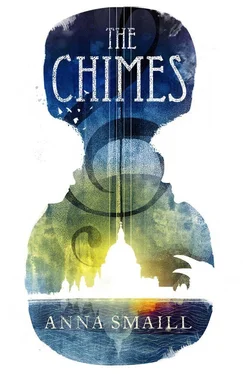

![Чарльз Диккенс - Колокола [The Chimes]](/books/395589/charlz-dikkens-kolokola-the-chimes-thumb.webp)




